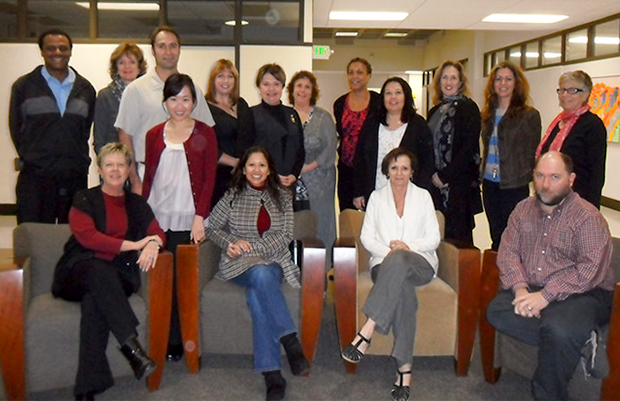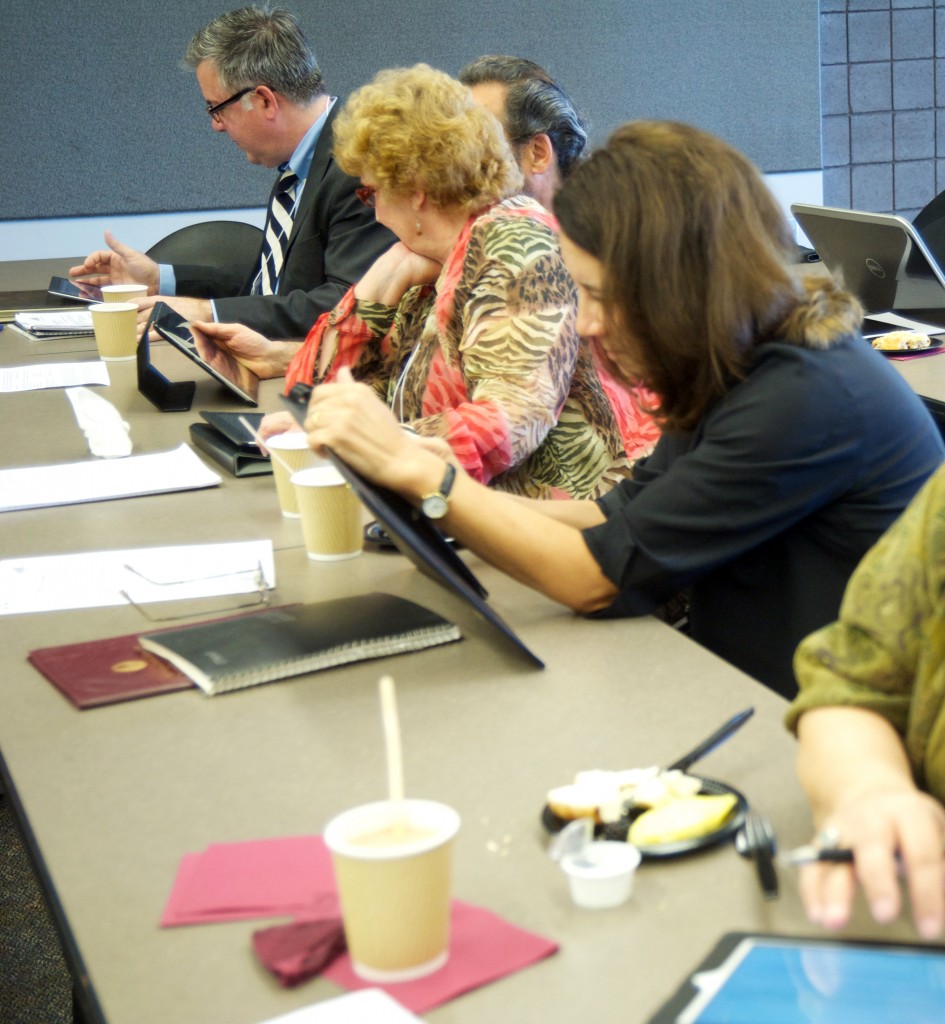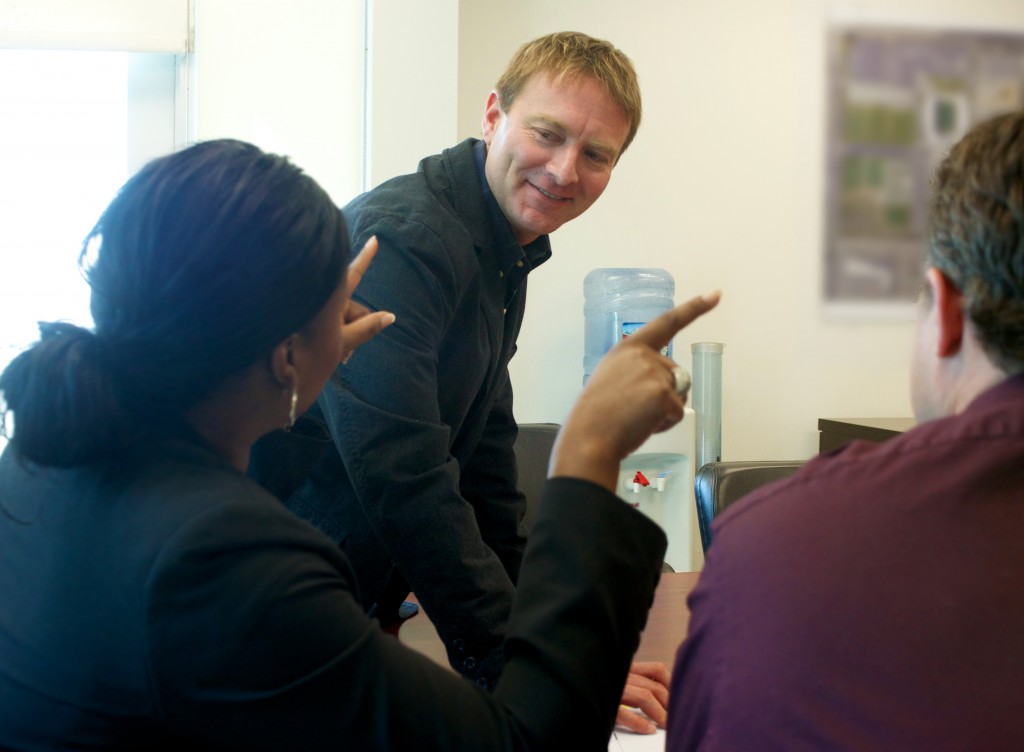For the better part of a three-day stretch in January, several members of the faculty at California State University, Dominguez Hills participated in the university’s Scholars Writing Institute (SWI), forming a study hall of sorts to put procrastination at bay and remove distractions in order to advance the progress of draft manuscripts, conference abstracts, grant proposals, or other scholarly writing projects.

“The institute provides a collection of support services–whether it’s the group itself or individual expertise offered–that faculty need in order to be productive in their research and scholarly activities,” said Kaye Bragg, acting associate vice president for Academic Programs and Faculty Development.
The institute, which has been funded in part by Academic Affairs and Institutional Research, Assessment and Planning, is one component of the recently revitalized Faculty Development Center (FDC) and is part of an overall goal to increase support for faculty.
“Faculty are a precious resource for us and we want to retain them. We want to mentor them so that they can contribute to the Dominguez Hills mission,” Bragg noted.
The SWI is one of just a number of faculty development programs Bragg hopes to implement through the FDC, such as the Apple iPad day-long training seminar held on March 1. Her proposal of short-term and long-term development programs–based on interviews with faculty, her background in teaching and faculty assessment and development–has been well-received by CSU Dominguez Hills Interim President Willie J. Hagan and Provost and Vice President of Academic Affairs Ramon Torrecilha, both who have expressed that a strong priority for the university is faculty development.

Bragg is hoping to institutionalize SWI, which was implemented in 2012 by former acting associate vice president of Research and Funded Projects Jim Till.
“Faculty really responded. We received a lot of positive feedback,” Bragg said of first-year SWI participants. “They wanted to have the institute again, so as we rolled out the faculty development programs for this year, we wanted to have two of them.”
In addition to the SWI in January, a second is planned for late May, after the conclusion of the spring term and commencement. The institute has established a virtual space on the recently launched FDC website, where faculty can learn about such development opportunities and activities.
The institute, which is co-directed by professor of teacher education John Davis and lecturer of humanities Emily Magruder, features another notable innovation this year; it is open to all faculty members.
“I was very excited to see that lecturers were included in the institute,” said Magruder, who was named the Lyle E. Gibson Distinguished Teacher in 2011. “I saw that as a sign that lecturers are going to be included fully in the community here on campus.”
Noting the high percentage of lecturers among the faculty at CSU Dominguez Hills, Magruder stressed that it is important for the university to offer support that helps them, as well as full-time tenured professors, to stay current with their research.
“Scholarly activity is what keeps you interested in teaching,” said Magruder, who participated in the writing institute, adding, “What was appealing to me about the institute was ….being around other people who are doing the same thing, who would be supportive, because scholarly work particularly in my field–in the humanities–can be a very solitary pursuit.”
She pointed out that SWI serves as a model for how a dedicated physical space promotes peer support, and as part of the vision for the FDC to support and involve faculty members, establishing a dedicated a space to house the center is under consideration. Magruder went on to say that this would provide a place for faculty to assemble and share such experiences as best practices in teaching and ideas about how their scholarly activity engages students.
In addition to having the support of one another, throughout the multi-day institute participating faculty had the opportunity to meet with a consultant for 30-minute sessions.

Matt Mutchler, associate professor of sociology and director of the Urban Community Research Center at CSU Dominguez Hills, served as a consultant for statistical and research design, and basic editing.
“People were so impressed with his contribution last year, that they requested he be invited again,” Bragg said, referring to his participation as consultant in the last writing institute.
The institute was dedicated to writing activity from 9 a.m. to 3:30 p.m.–save a break for lunch, which was provided–and was followed by a half-hour debriefing session for faculty to share what they accomplished during the day and their plan for the next day.
“By participating in the Scholars Writing institute, I was able to capitalize on that extremely precious commodity: large uninterrupted blocks of time to become deeply immersed in writing and creative work,” said John Keyantash, chair and associate professor of earth sciences.
Tools provided for participants included printers, connectivity for laptops and other electronic equipment, ample workspace, and comfortable seating in a quiet location. For collaborative projects that required discussion, private meeting areas were available.
Bragg said a number of the 19 faculty members who participated came away with concrete evidence, demonstrating that the SWI is a productive pursuit. One such faculty member is associate professor of biology Terry McGlynn.
“During the Scholars Writing Institute I finished the final revisions on a manuscript, which has now come to press, and I also did substantial work on another manuscript which is currently in review,” he said. “I also started a few pieces that I used for my new blog, which has taken off quickly in a few weeks.”
Whether writing blog entries, a play, composing music, responding to a request for article revision, finishing a new chapter in a book, analyzing data set in preparation to writing a results section, or writing the narrative of a new grant, Bragg said participation in the institute shows commitment to one’s research and discipline, as well as contributing to the community of scholars on campus.
To learn more about the Scholars Writing Institute and other faculty development programs, call (310) 243-1065 or visit the Faculty Development Center’s recently launched website at fdc.csudh.edu.